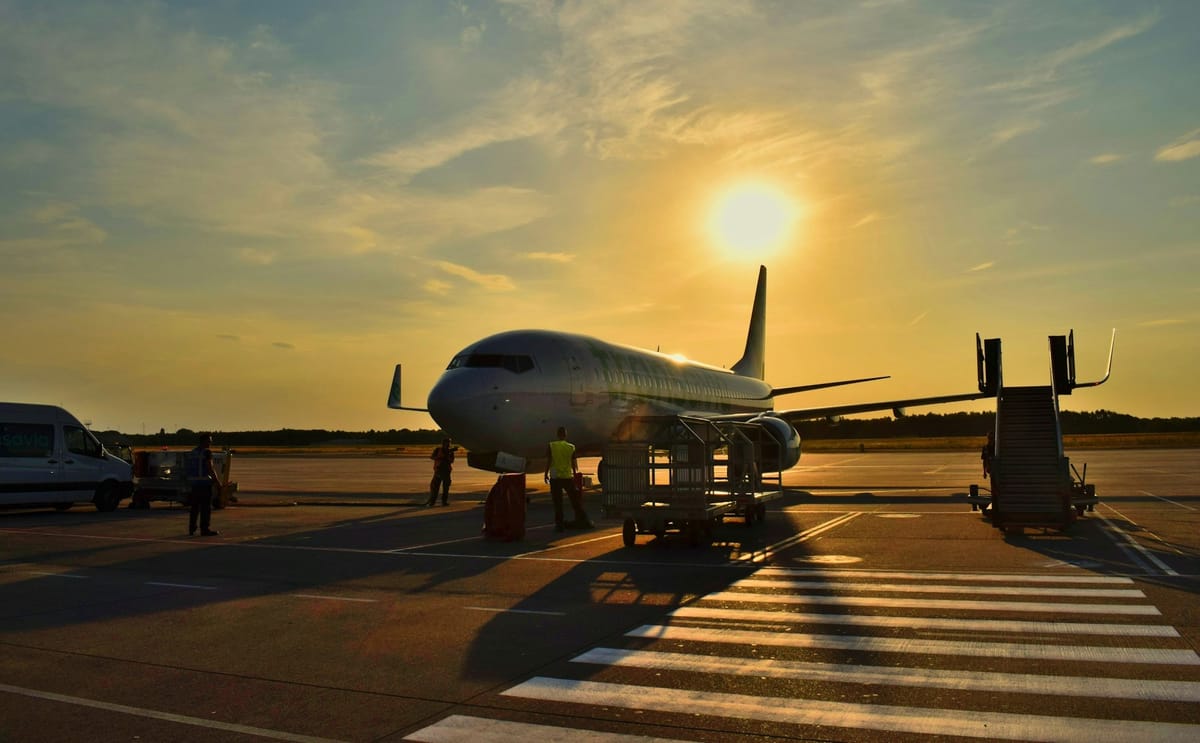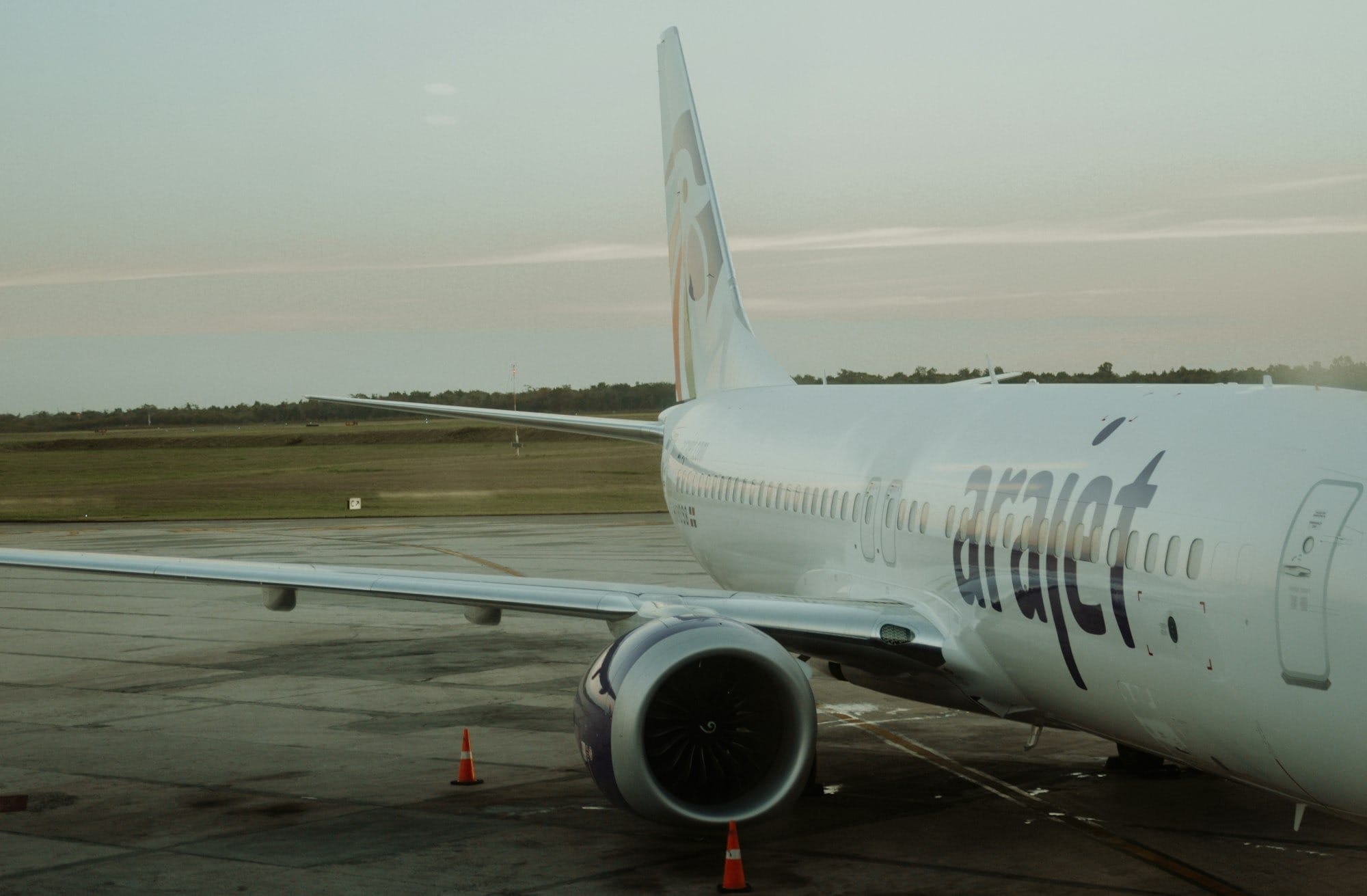Hartsfield-Jackson Atlanta International Airport Retains Top Spot as World's Busiest Airport
Hartsfield-Jackson Atlanta International Airport (ATL) has once again secured its position as the world's busiest airport, continuing a remarkable streak that has lasted for over two decades.

Hartsfield-Jackson Atlanta International Airport Retains Top Spot as World's Busiest Airport
Key Takeaways
- Hartsfield-Jackson Atlanta International Airport (ATL) remains the world's busiest airport.
- The airport handled over 93 million passengers in 2023.
- Key factors for its success include strategic location, operational efficiency, and extensive connectivity.
- The airport faces challenges such as sustainability, infrastructure upgrades, cybersecurity, and workforce shortages.
- Future plans focus on technology integration, capacity expansion, and sustainability initiatives.
Introduction
Hartsfield-Jackson Atlanta International Airport (ATL) has once again secured its position as the world's busiest airport, continuing a remarkable streak that has lasted for over two decades. This achievement underscores Atlanta's crucial role as a major hub for global air travel and commerce, while also highlighting the resilience and adaptability of the aviation industry in the face of ongoing challenges.
Passenger Volume and Global Ranking
According to the latest data released by Airports Council International (ACI), Hartsfield-Jackson Atlanta International Airport handled over 93 million passengers in 2023. This represents a significant recovery from the pandemic-induced downturn and edges closer to its pre-pandemic record of 110 million passengers set in 2019. This passenger volume solidifies Atlanta's position at the top of the global airport rankings, outpacing other major hubs such as Dubai International Airport and Tokyo Haneda Airport.
Factors Contributing to Success
Strategic Geographic Location
Atlanta's position as a major connecting hub for both domestic and international flights plays a crucial role in its success. The city's location allows airlines, particularly Delta Air Lines, which uses ATL as its primary hub, to efficiently connect passengers between various destinations across North America, Europe, and beyond.
Operational Efficiency
Hartsfield-Jackson is renowned for its operational efficiency, boasting five parallel runways that enable simultaneous takeoffs and landings. This infrastructure allows the airport to handle a high volume of aircraft movements with minimal delays, a critical factor in maintaining its status as the world's busiest airport.
Economic Impact
The airport's significance extends far beyond passenger numbers. According to the Air Transport Action Group (ATAG), the aviation industry supports approximately 11.3 million direct jobs globally. In Atlanta, the airport is a major economic engine, generating billions of dollars in economic impact and supporting hundreds of thousands of jobs in the region.
Connectivity and Route Network
With over 150 domestic destinations and more than 70 international destinations served directly from Atlanta, the airport offers unparalleled connectivity. This extensive route network is a key driver of its passenger volume and economic importance.
Challenges and Future Outlook
Sustainability Concerns
The aviation industry is under increasing pressure to address its environmental impact. ATAG reports that the global aviation industry produces around 2.1% of all human-induced CO2 emissions. Hartsfield-Jackson, as a leader in the industry, is taking steps to reduce its carbon footprint through initiatives such as energy-efficient lighting, electric ground support equipment, and sustainable building practices.
Infrastructure Upgrades
To maintain its competitive edge and accommodate future growth, the airport is undergoing a $6 billion capital improvement program. This includes upgrades to concourses, expansion of cargo facilities, and enhancements to ground transportation options.
Cybersecurity Threats
As highlighted by Global Market Insights, cybersecurity remains a significant concern for the aviation sector. Airports like Hartsfield-Jackson must continually invest in robust cybersecurity measures to protect critical systems and passenger data.
Workforce Challenges
The aviation industry is facing a global shortage of skilled workers. Boeing projects that the industry will need an additional 612,000 pilots, 626,000 maintenance technicians, and 886,000 cabin crew members over the next two decades. As a major hub, Hartsfield-Jackson and its airline partners must address these workforce challenges to maintain operational efficiency.
Future Plans
Technology Integration
Implementing advanced technologies such as biometric screening, artificial intelligence for predictive maintenance, and enhanced baggage handling systems to improve efficiency and passenger experience.
Capacity Expansion
Continuing to invest in infrastructure improvements to accommodate projected growth in passenger and cargo traffic.
Sustainability Initiatives
Expanding efforts to reduce environmental impact, including increased use of sustainable aviation fuels (SAF) and further improvements in energy efficiency.
Enhanced Passenger Experience
Focusing on innovations that streamline the travel process and improve customer satisfaction, from check-in to baggage claim.
Summary
Hartsfield-Jackson Atlanta International Airport's retention of its title as the world's busiest airport is a remarkable achievement that reflects not only the facility's operational excellence but also the resilience of the global aviation industry. As air travel continues to recover and grow, Atlanta's airport stands as a testament to the vital role that aviation plays in connecting people, cultures, and economies around the world. With its strategic location, efficient operations, and forward-looking approach, Hartsfield-Jackson is well-positioned to remain a leader in global aviation for years to come.
Q&A Section
Q: What makes Hartsfield-Jackson Atlanta International Airport the busiest airport in the world?
A: Key factors include its strategic geographic location, operational efficiency, extensive connectivity, and significant economic impact.
Q: How many passengers did Hartsfield-Jackson handle in 2023?
A: The airport handled over 93 million passengers in 2023.
Q: What are some challenges faced by Hartsfield-Jackson?
A: Challenges include sustainability concerns, infrastructure upgrades, cybersecurity threats, and workforce shortages.
Q: What future plans does the airport have to maintain its status?
A: Future plans focus on technology integration, capacity expansion, sustainability initiatives, and enhancing the passenger experience.








